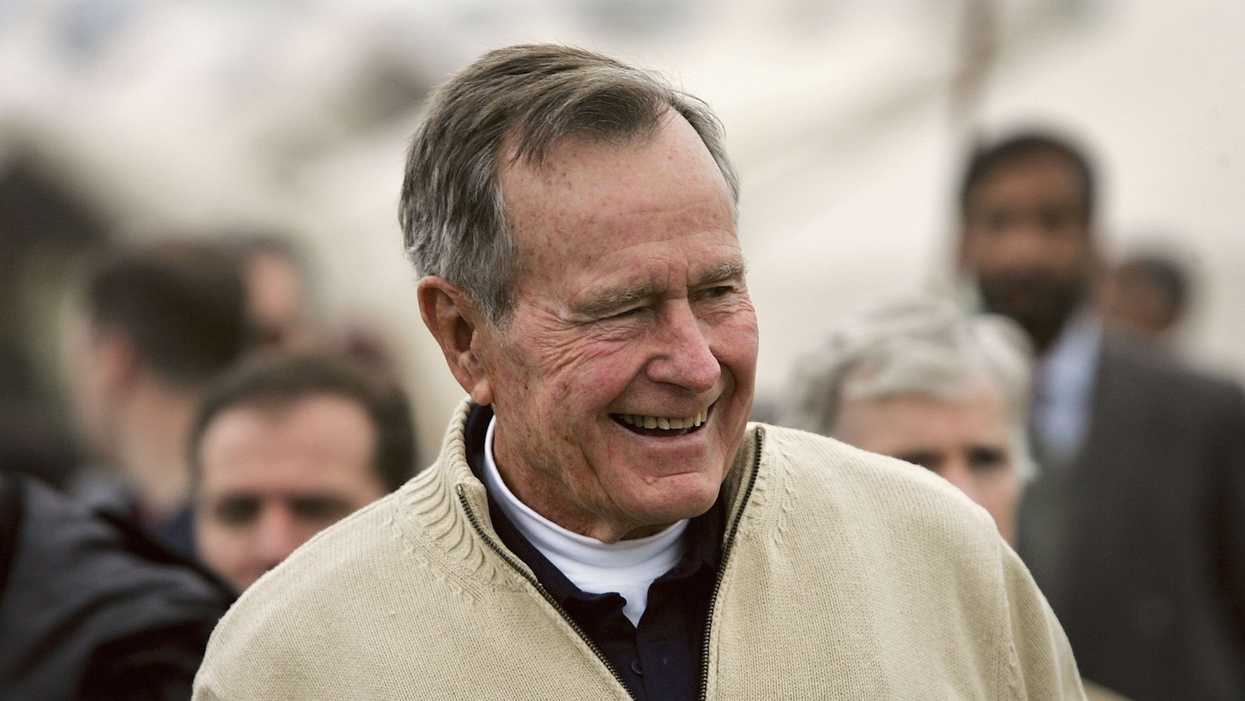
(Photo by John Moore/Getty Images)

Even mourning is not free from political conflict.
It didn't take long after the passing of former President George H.W. Bush for some media organizations to begin pointing out the flaws of his life and legacy.
The Associated Press, hours after news of Bush's passing broke, posted a tweet that omitted Bush's military service but notably emphasized the fact that he was voted out of office after one term amid a struggling economy. The organization later deleted and apologized for the tweet.
The next day, New York Magazine took the opportunity of Bush's death to update and republish a Nov. 14, 2017 article titled "Beware the Bush Family Image-Rehab Machine." The magazine tweeted the article out Saturday with the succinct caption "The case against George H.W. Bush."
And Sunday, HuffPost published "The Media is Erasing George H.W. Bush's Catastrophic Harm to LGBTQ People."
My opposition to these examples is not that I don't respect and support the rights of the authors to express these opinions. I don't believe they should pretend to agree with or even like Bush just because he recently died.
I do, however, maintain a (possibly naive) view that when someone dies, you show them some respect by either saying something kind or comforting, or refraining from saying anything if you don't have anything good to say. The news of a former president's death shouldn't send you to your computer to publish your best takedown of his life.
Maybe I still have an old-fashioned mentality and I haven't assimilated to the current internet culture that says you always have to speak on everything right away. To me, it makes sense to read the situation and consider the timing and appropriateness of whatever you have to say.
Everyone has a platform now, and even those with the largest audiences seem taken by a desperation to be heard, right now. It's a high crime in online media to let a cultural moment pass without adding your voice to it, and too many add their voices without a thought to whether they're adding value. And so when someone of national significance dies, along with the respectful tributes and condolences come the people making sure we don't remember the deceased too fondly.
There are clicks to be gotten, I suppose. When something hits "trending topic" status on Twitter, everyone has to take their shot. But it illustrates the divide between what is acceptable online versus real life, where I think even Bush's most extreme political and ideological opponents would hesitate before walking into a room and saying "Oh, Bush just died? That guy was awful."
If nothing else, I hope that those of us who have public-facing platforms to express our opinions would choose to exercise some empathy, and think very hard before treating someone else's death in a way that would cause us offense if someone did it to our loved one.
Rest in peace to George H.W. Bush, the 41st president of the United States of America. He lived, served, and led in a way that is worthy of respect, in a way that should be able to exist separate and apart from political conflict.
Bush's legacy, like that of any person to rise to that office, is complex and disputed. And there is a time and a place for that conversation. In my opinion, that time is not the moment he dies.
"For everything there is a season, and a time for every matter under heaven. … a time to keep silence, and a time to speak" –Ecclesiastes 3:1, 7b